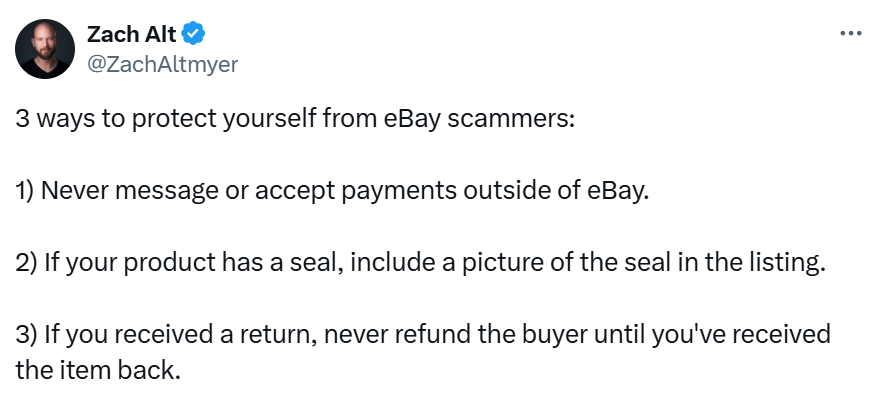Happy Monday.
Rufus, Amazon’s AI shopping assistant, isn’t as useful as expected during Prime Day. For starters, it didn’t offer suggestions to customers looking for the best deals during the event. It’s kinda disappointing—like the experience of one seller and one customer in our exposés today.
- Why you shouldn’t jump on someone else’s ASIN 🙅
- Best ways to recover from losses due to returns 💰
- Amazon and the Better Business Bureau vs. a fake review broker 🤝

POST OF THE WEEK


BLACK MARKET
We know you still have a Prime Day hangover, but we’re not talking about that today. Instead, we’re starting the week with a story about a common seller problem that is caused by a not-so-common reason: an untrained employee!
In the post shared by the seller, they got deactivated after receiving an IP violation. The twist: the product (home bedding) in question is their legit item!
🌀 What happened?
- An untrained employee found an ASIN/Listing of the sellers’ product. Since other sellers were on the listing, the employee thought it was okay to jump on it.
- However, the owner of the ASIN reported OP, who then received the IP complaint.
- OP has already made 15 appeals, submitting all necessary paperwork (to prove the item is authentic) and a Plan of Action (more training for employees). But Amazon hasn’t reactivated the account.
Adding insult to injury, the product listed is something they’ve been selling in another marketplace for the past 10 years!
💡 What to do when this happens to you
- Create your own listing, even if resellers are already on Amazon.
- Enroll in Brand Registry to start brand gating against unauthorized resellers.
- If you find a seller selling your product without your permission, you can report them instead of trying to jump on their ASIN. Perform a test buy if necessary to prove the difference between their product and your authentic one.
And finally, don’t forget to brush up on Amazon Selling Guidelines. 📌

BITES OF THE WEEK
- 200 Million Sold: Small to medium-sized businesses sold more than 200 million items this Prime Day.
- Behind the Scenes: Here's how Amazon teams prepared for the biggest Prime shopping event ever.
- Danger Delivery: Parcel delivery is now available for permissible dangerous goods like hand sanitizer.

AMAZON NEWS
Amazon and the Better Business Bureau files a joint lawsuit against a fake review broker

Fake reviews remain a growing problem that misleads shoppers and hurts honest businesses. That’s why Amazon is investing heavily in technology and experts to combat this issue.
To further tackle this issue head-on, Amazon has filed a joint lawsuit with the Better Business Bureau (BBB) in the federal U.S. District Court for the Western District of Washington against fake review brokers.
🔍 What’s going on?
For the first time ever, the retail giant and BBB are suing an illegitimate business called ReviewServiceUSA.com.
- The owners and operators of the website sold fake positive reviews for Amazon product listing pages and BBB business profile pages.
- They used fake customer accounts to post these reviews and falsely boost product and business ratings.
Here’s how sneaky fake review brokers can be:
- A customer shared that he received a postcard that looked like it was from Amazon at first glance but was actually from a marketplace seller on Amazon.
- The postcard offered €20 ($21.65) via PayPal for a 5-star review on an oil sprayer that cost €10 ($10.82).
- He wrote a 5-star review, sent proof of the published review via email, and got paid within 2 days.
- The sender’s details on PayPal show that the payment came from a company based in Shenzen, China, which is the production site for many goods shipped overseas.
🤝 Teaming up against fake reviews
With this joint effort, Amazon and the BBB are sending a strong message: they’re serious about protecting the integrity of reviews and ensuring a trustworthy marketplace for everyone.
You can play a role in this fight too! Keep an eye out for suspicious reviews on your product listings. If you spot something fishy, report it to Amazon ASAP.








